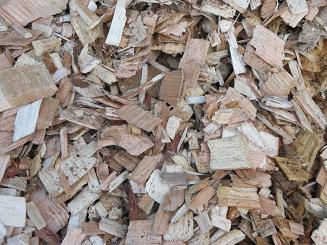Removing decaying wood from the forest disrupts the life cycle of decomposers (decay fungi, insects, bacteria, etc.), which in turn can disrupt the food source and habitat for other plants and animals. The degree of disruption to the native ecology depends on how much decayed wood is removed and over how large an area. Scrubbing the forest of all decayed wood would be a serious disruption; however, since decayed wood has very little value (energy or economic), that is an unlikely scenario. It is also important to remember that continued growth of woody shrubs and trees add wood for the decomposers in the form of dead branches and foliage. Stumps and roots are also a major component of the forest biomass, so as long as roots and stumps remain in the ground, there would be sufficient biomass for the subterranean decomposers that play an important role in maintaining soil quality.
